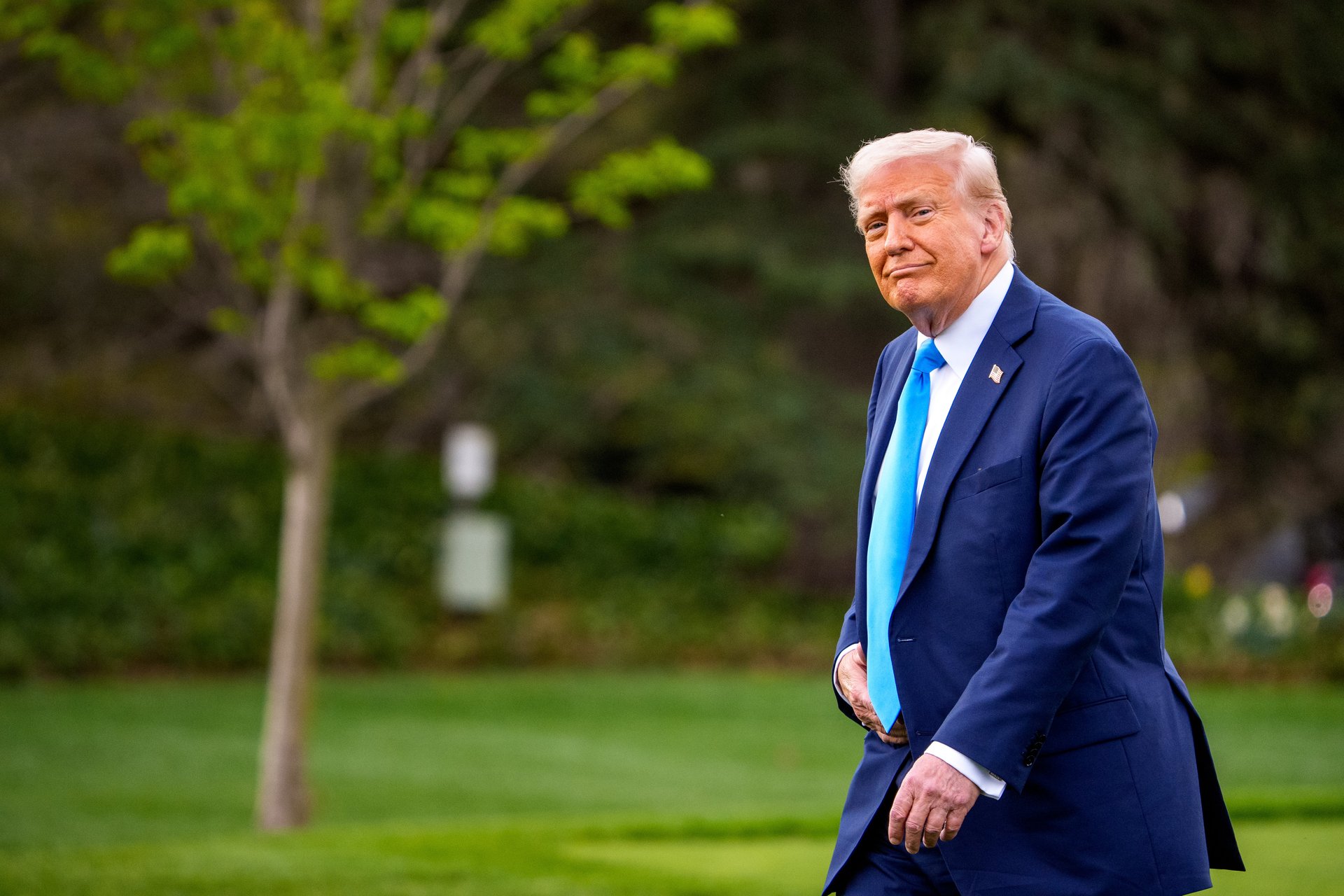Trump's planned 'reciprocal' tariffs will take effect 'immediately,' White House says
The president is expected to announce the wide-ranging duties on Wednesday

President Donald Trump’s long-awaited reciprocal tariffs will be “effective immediately” after he announces them on Wednesday, according to the White House.
Suggested Reading
“He’s talked a lot about April 2 as ‘Liberation Day’ in America,” said Press Secretary Karoline Leavitt at a Tuesday press briefing. “Tomorrow will be the day.”
Related Content
Concerns over Trump’s tariffs have plagued Wall Street since the president asked his advisors to draft “fair and reciprocal” tariffs in early February. Trump is set to announce the U.S. strategy at 4 p.m. tomorrow as markets close.
The S&P 500 and the Nasdaq composite index just recorded their worst quarter in about three years, primarily due to fears that the import taxes will slam profit margins. Goldman Sachs (GS) economists have increased their forecasted odds of a recession over the next 12 months to 35% from 20%.
“The market hasn’t wanted to see the tariffs as a real thing,” Marta Norton, Empower’s chief investment strategist, told Quartz. “Investors aren’t prepared for the ideological scenario.” Permanently higher tariffs would directly boost companies’ costs, eating into profits and forcing investors to reassess stocks’ valuations, she said.
It’s still unclear which nations will get hit with tariffs, although it is increasingly likely that just about every country engaging in goods trade with the U.S. will be affected. The countries most likely to be affected are what Treasury Secretary Scott Bessent has called the “dirty 15,” the 15% of countries with the most persistent trade imbalances with the U.S.
On Monday, Trump told reporters that he’s settled on a tariff plan, but declined to reveal any details. His team has pitched several packages, including a 20% tariff on virtually all imports, according to The Wall Street Journal (NWSA).
Goldman analysts said last week that Trump administration officials have said initial duties are meant as a basis for talks — which incentivizes them to set high rates. The bank expects the average rate of U.S. tariffs will rise 15 percentage points this year.
The only known new tariff set to take effect is a 25% duty on all imported vehicles, announced last month, to be levied starting at 12:01 a.m. ET on Thursday. It will extended to cover carparts no later than May 3, according to the White House.
Wedbush Securities analyst Dan Ives on Monday said the U.S.’ tariff policy will cause “pure chaos” for the auto industry and quickly raise car prices by between $5,000 and $10,000. Automakers will also be affected by other tariffs, including those on aluminum and steel imports.
Ford Motor Co. (F), General Motors (GM), and Stellantis (STLA) have been lobbying the federal government to soften those tariffs, arguing that the levies would drive up costs by billions of dollars and could lead to layoffs, Bloomberg News reports.
Drugmakers are also lobbying Trump to phase in tariffs to give them time to adjust manufacturing, according to Reuters. The president has discussed sector-specific tariffs of 25% on pharmaceuticals, although it’s unclear if those duties will be announced this week.
Leavitt on Monday said there are “no exemptions at this time” for any products. “Wall Street will work out just fine in this administration, just like they did in the first term,” she added.
— Josh Fellman contributed to this article.
